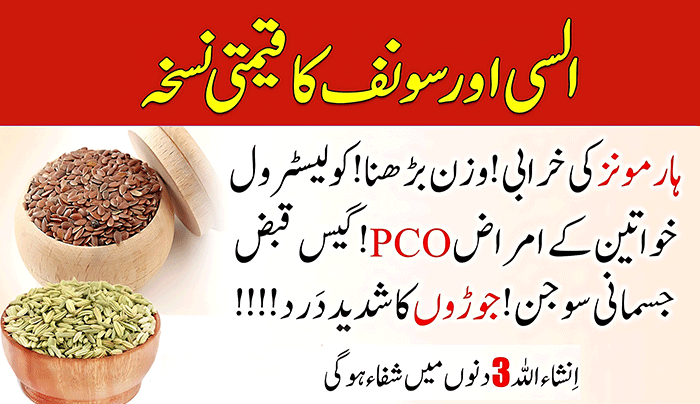
Polycystic ovary syndrome (PCOS) is a common condition that affects the hormones of women and people assigned to females at birth (AFAB). It can cause irregular periods, excess hair growth, acne, infertility, and other health problems. In this blog post, we will explain what PCOS is, what causes it, how it is diagnosed and how it can be treated.
What is PCOS? PCOS is a hormonal imbalance that occurs when the ovaries produce too many androgens, which are male hormones. Androgens are normally present in small amounts in women and AFAB people, but when they are too high, they can interfere with the normal function of the reproductive system.
Hormonal Imbalance and PCOS Treatment (Urdu)
The ovaries are the organs that produce and release eggs. Each month, one of the ovaries releases an egg, which travels to the uterus through the fallopian tubes. This process is called ovulation. If the egg is not fertilized by a sperm, it is shed along with the lining of the uterus during menstruation.
In PCOS, the ovaries may not ovulate regularly or at all. Instead, they may develop small fluid-filled sacs called follicles or cysts. These cysts are not harmful or painful, but they can prevent the eggs from maturing and being released. This can lead to irregular or missed periods, as well as difficulty getting pregnant.
PCOS can also affect other aspects of the body, such as the skin, hair, metabolism, and mood. The excess androgens can cause acne, especially on the face, chest, and back. They can also cause hirsutism, which is unwanted hair growth on the face, chest, abdomen, arms, and legs. PCOS can also increase the risk of obesity, insulin resistance, diabetes, high blood pressure, high cholesterol, heart disease, sleep apnea, endometrial cancer, and depression.
What causes PCOS?
The exact cause of PCOS is not known. However many other factors may contribute to its development:
Genetics: PCOS may run in families. If you have a biological parent or sibling with PCOS, you may have a higher chance of having it too.
Read Also: How to avoid a C-section: Best Foods for Expectant Mothers
Insulin resistance: Insulin is a hormone and it helps the human body to use glucose (sugar) for energy. If your body does not respond well to insulin, your blood sugar levels may rise. This can trigger your pancreas to produce more insulin. High levels of insulin can stimulate your ovaries to produce more androgens.
Inflammation: Inflammation is a natural response of your immune system to fight infections or injuries. But remember chronic inflammation can be harmful to your health. Some studies have shown that women and AFAB people with PCOS have higher levels of inflammation markers in their blood. Inflammation may also increase the production of androgens by the ovaries.
How is PCOS diagnosed?
There is no single test that can diagnose PCOS. Your lady doctor will ask you about your medical history, symptoms, menstrual cycle, and family history. They will also perform a physical exam to check for signs of excess hair growth, acne, obesity, and ovarian cysts.
Your healthcare provider may also order some blood tests to measure your hormone levels and rule out other conditions that may cause similar symptoms. These tests may include:
Follicle-stimulating hormone (FSH): This hormone stimulates the growth of follicles in the ovaries. In PCOS, FSH levels may be normal or low.
Luteinizing hormone (LH): This hormone triggers ovulation. In PCOS, LH levels may be high.
Testosterone: This is the main male hormone that causes excess hair growth and acne in PCOS. Testosterone levels may be high or normal in PCOS.
DHEAS: This is another male hormone that is produced by the adrenal glands. DHEAS levels may be high or normal in PCOS.
Estrogen: This is the main female hormone that regulates the menstrual cycle and fertility. Estrogen levels may be normal or slightly high in PCOS.
S hormone binding globulin (SHBG): This is a protein that binds to testosterone and reduces its effects on the body. SHBG levels may be low in PCOS.
Androstenedione: This is a precursor of testosterone that is produced by the ovaries and adrenal glands. Androstenedione levels may be high in PCOS.
Prolactin: This is a hormone that stimulates milk production in the breasts. Prolactin levels may be normal or low in PCOS.
Thyroid-stimulating hormone (TSH): This hormone regulates the function of the thyroid gland.
FAQs on PCOS and Hormonal Imbalance:
1. Can PCOS be passed down through generations?
Answer: Yes, PCOS may have a genetic component. If a biological parent or sibling has PCOS, the chances of inheriting it may increase. However, genetic predisposition is not the sole factor contributing to PCOS; other environmental and lifestyle factors also play a role.
2. How does insulin resistance relate to PCOS?
Answer: Insulin resistance, where the body’s cells don’t respond effectively to insulin, is associated with PCOS. Elevated insulin levels can stimulate the ovaries to produce excess androgens, contributing to hormonal imbalances. Managing insulin resistance through lifestyle changes, such as a healthy diet and exercise, is often a part of PCOS treatment.
3. Is chronic inflammation linked to PCOS?
Answer: Yes, studies suggest a connection between PCOS and higher levels of inflammation markers. Chronic inflammation in women and AFAB individuals with PCOS may contribute to increased androgen production by the ovaries. Addressing inflammation through lifestyle modifications and, in some cases, medications may be part of the treatment plan.
4. Are there specific blood tests for diagnosing PCOS?
Answer: While there’s no single test for PCOS, blood tests play a crucial role in diagnosis. Hormone levels such as FSH, LH, testosterone, DHEAS, estrogen, SHBG, and androstenedione are measured. Additionally, other tests, including prolactin and TSH, help rule out other conditions with similar symptoms. A comprehensive assessment, including medical history and physical exams, aids in accurate diagnosis.
5. Can hormonal imbalance in PCOS affect metabolism and contribute to other health risks?
Answer: Yes, hormonal imbalance in PCOS, coupled with insulin resistance, can impact metabolism. Elevated androgens, insulin resistance, and inflammation may contribute to an increased risk of obesity, diabetes, and cardiovascular issues. Managing hormonal balance is a key aspect of preventing these potential long-term health risks associated with PCOS.
6. Can PCOS impact thyroid function?
Answer: PCOS itself doesn’t directly affect thyroid function. However, thyroid-stimulating hormone (TSH) levels are assessed during the diagnostic process to ensure thyroid health is not contributing to the symptoms. PCOS and thyroid issues can coexist, emphasizing the importance of thorough testing to understand and address all potential contributing factors to a person’s health.
To sum it up, PCOS is a complicated issue that affects how hormones work in people assigned females at birth. It causes problems with periods, skin, hair, and more. We’re not exactly sure what causes PCOS, but genes, trouble with insulin, and ongoing inflammation seem to play a role.
Diagnosing PCOS isn’t simple; it involves looking at your medical history, and symptoms, and doing blood tests. Treatment varies and might include lifestyle changes, medicines, or fertility help.
Fixing the hormonal imbalance is key in managing PCOS. It’s not just about fixing immediate issues but also preventing long-term problems. PCOS is tricky, and everyone’s experience is different. By understanding PCOS better, we can help people dealing with it live better lives.







